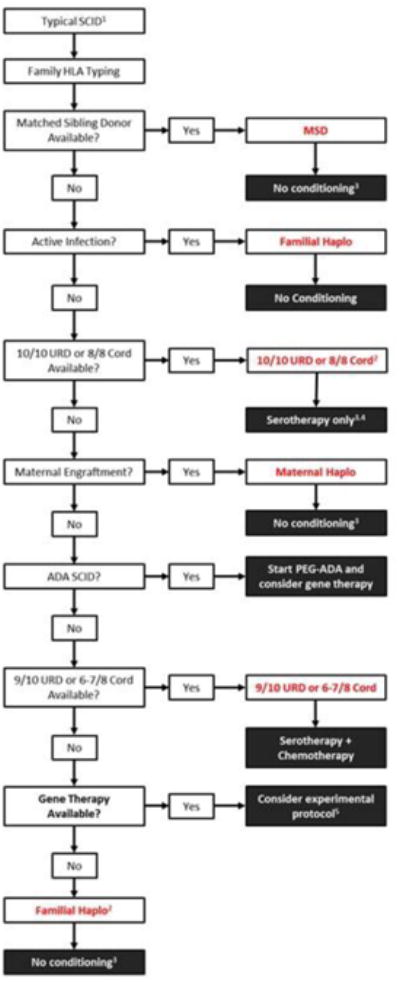Figure 1.

Donor selection and conditioning regimen in patients with typical SCID (UCSF approach).
1Algorithm excludes Omenn's syndrome and leaky SCID that would be classified as atypical (2). Also excludes patients with DNA sensitivity, as donor selection and conditioning for these patients are variable due to the high risk of rejection and potential for chemotherapy toxicity
2Based on availability, CMV status, donor age, or other variables. Patients with RAG SCID receiving a haploidentical transplant will generally require non-myeloablative chemotherapy and serotherapy.
3May consider chemotherapy-based conditioning for enhanced B cell and/or T cell reconstitution
4Patients with T-B-NK+ SCID receiving an URD transplant generally require a conditioning regimen with serotherapy
5Experimental gene therapy protocols are becoming more widely available and should be considered in cases where no appropriate donor can be identified
